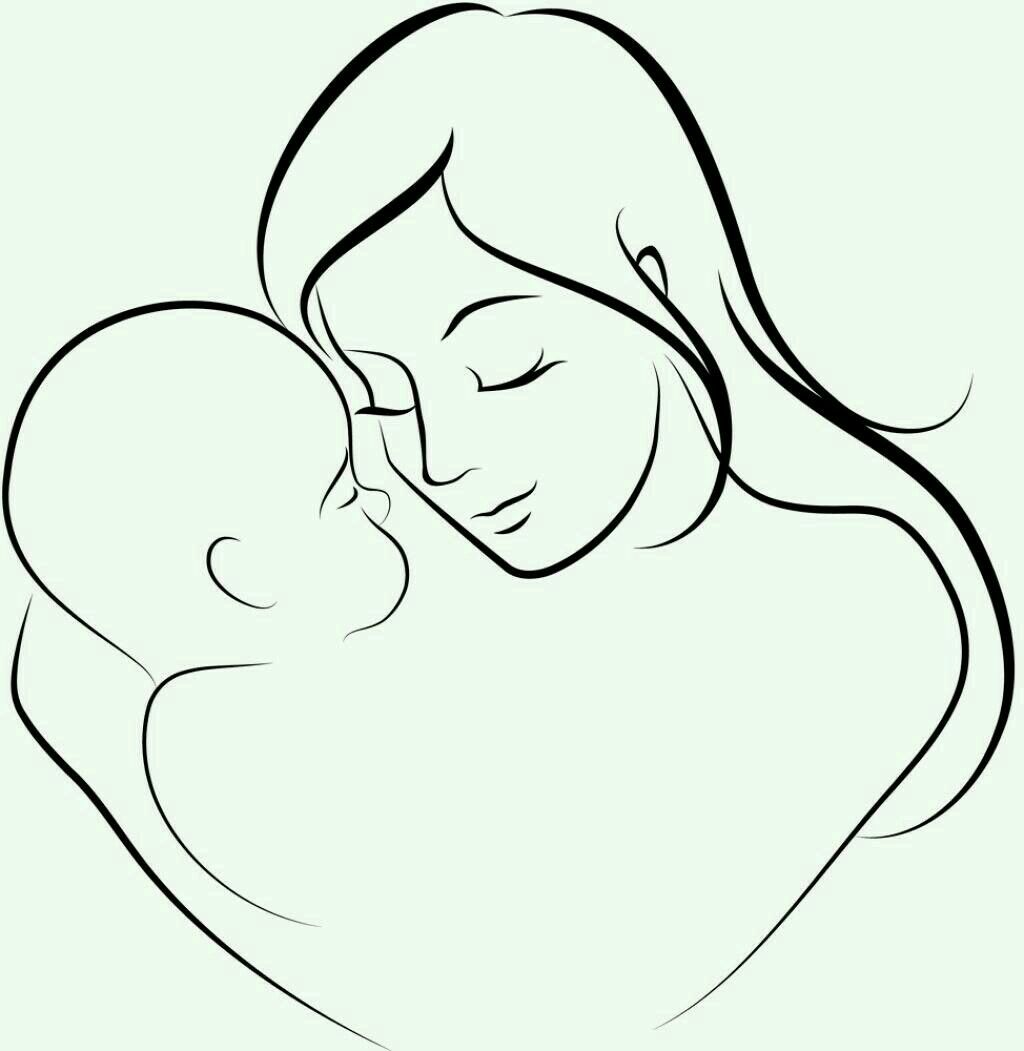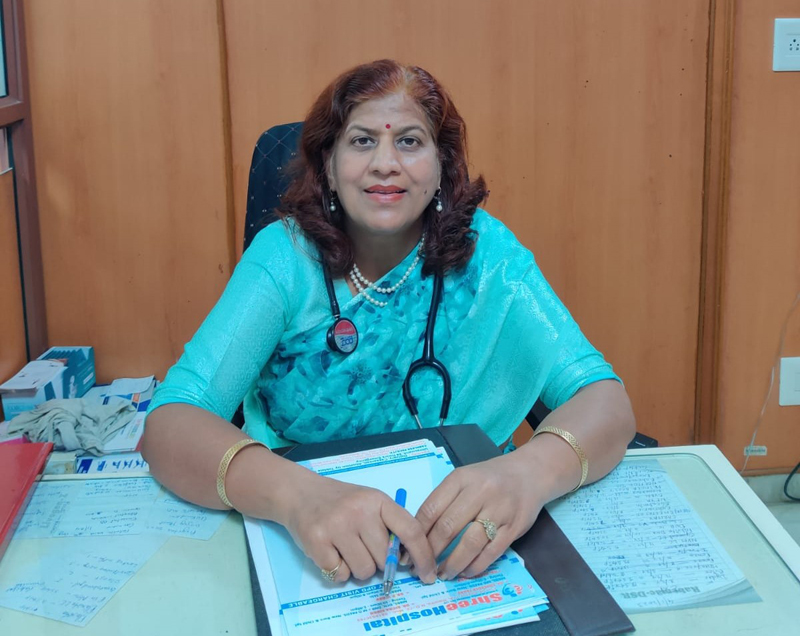Shree Hospital Dwarka
We are Committed to Your Health with Rational Treatment
Location
Plot no. 54, Sec-12/A, Opp. Bal Bharti School, Dwarka,
New Delhi-110078
Get In Touch
Enhancing healthcare through rational treatment practices, emphasizing minimal investigation and prudent use of antibiotics
Call Us
+91 – 9810536755
Hours
24 Hour Emergency
Sunday Evening Off
Shree Hospital Dwarka
SHREE HOSPITAL was founded in 2005 at Dwarka with the objective of creating an efficient, ethical, and affordable neighbourhood healthcare delivery system, created and managed by medical professionals. Being a non corporate sector hospital managed by professionals it has provided affordable health care services. We adopt a “patient centric” approach to healthcare, which means that the patient’s needs always come first. Our services have always been with a personal touch but extremely professional.
Dr. Neena Yadav
M.B.B.S., D.G.O. (Gynaecologist & Ladies Spl.)
Timing: 10 am – 1 pm & 6 pm – 8:30 pm
Dr. Neena Yadav passed M.B.B.S.from Lady Hardinge Medical College in 1995 & D. Gynae & Obs. from Safdarjung Hospital in 1999. She has done 3 years as senior residency in Guru Gobind Singh Hospital. Currently, she is doing private practice and doing cases dealing with infertility, gynae, delivery, caesarean, hysterectomy, laparoscopic surgeries, recanalisation and adolescent problems.
Dr. Surender Yadav
M.B.B.S., M.D. (PAEDS)
Timing: 10 am – 1 pm & 6 pm – 8:30 pm
Dr. Surender Yadav has done M.B.B.S.from Lok Manya Tilak Medical College, Bombay & M.D. (Paeds), Child Specialist, from Govt. Medical College, Patiala, Punjab. He started his practice in 1999 as pioneer doctor in Dwarka. He has done senior residency in Pediatric department of Safdarjung Hospital. Currently, he is medical director of SHREE HOSPITAL since 2005
Our Helathcare Services
Paediatric Care
Lactation & Breastfeeding Specialist
Minimum use of Antibiotics
Rational Management & Investigation
Recurrent Cough & Cold
Constipation
Vaccination
Growth & Nutrition
New Born Care
Gynaecologist & Ladies Specialist Care
Painless Delivery
Normal Delivery
LSCS- Cesarean Delivery
Family Plaining
Infertility
Gynaecological Operation
How to take care of new born baby?
Feed
Exclusive breast feeding upto 6 months, don’t use Ghutti& top feed.Baby’s growth will be excellent (Baby will gain 20-30gm weight per day & at 6 month weight will be 8-9kg)
Bath
Put the baby on folded knee joints with face & stomach facing downward & then give bath with lukewarm water. No chances of water going into nostrils & mouth.
Urine
Baby may cry before and after passing urine. Baby may pass 8-10 times urine per day.
Stool
Baby may pass one stool in 3-5 days or some time baby may pass 10-20 small watery, green or yellow stool after breast feed. If baby is active, accepting feed well, then in both condition treatment is not required.
Comfortable Temperature Zones
Keep the baby’s hands & feet warm to touch. If the are warm & wet than baby is in hot environment & if they cold to touch than baby is under cold stress.
Abdominal Colicky & Gas Problem
Put the baby on stomach & tap the back for 15-20 minutes & baby will get relief without any medication.
Breast Feeding
Why Breastmilk is best
Breastmilk constantly changes adapting itself to the changing needs of the growing baby. So, as the baby grows, the milk adapts its composition to provide exactly the rights stuff for what is required during this specific stage of the babies development: in the first few weeks, when a baby grows quickly the milk contains more calories. This decreases as growth slowdown. Later, when a baby starts to crawl and learns to walk, the milk becomes again more energetic.
Short Term Benefits
Breast not only nourishes the babies it provides unique immunisation with cells that bolster their immune systems. It decreases the incidence and/or severity of a wide range of infectious diseases including meningtitis, diarrhoea, respiratory tract infection, ear infection & uninary tract infection. But that’s not all : important health benefits of breastfeeding and lactation are also described for mothers. They include decreased post delivery bleeding and decreased menstrual blood loss and increased child spacing, earlier return to prepregnancy weight, decreased risk of breast cancer, decreased risk of ovarian cancer, and possibly decreased risk of hip fractures and osteoporosis in the postmenopausal period.
Long Term Benefits
These benefits last for a lifetime: An adult who had been breastfed as a baby will have a lower risk for a lot of illnesses in including Diabetes, Blood Cancer, Asthma, Obesity and many more.
Breastfeeding on joining work
If creche facilities are available near to place of work then baby can be fed during breastfeeding breaks Express breastmilk during work in a clean container for storage to be given to baby later on or discard to relieve heaviness.
This will ensure adequate milk production. Express Breast Milk at home should be refrigerated in separate container, Refrigerated Breast milk should be rewarm & given as spoon feed during your office time.
Breastfeeding successfully after Caesarean-Section delivery
This operation does not affect your ability to successfully breastfeed your baby. You can start breastfeeding after 4 hrs. of operation.
You can tilt your baby to one side in the lying-down position and start feeding, or you can put the baby on your abdomen and then feed the child. all mothers who have caesarean section deliveries are successful in breastfeeding their babies with assistance for the first few days.
Diet of Mother
It is also very important that the mother gets plenty of water, milk & proper nutritious diet. A nutritive diet, that includes a variety of milk products, eggs, meat, fish, fruits, vegetables, green etc. ensures plenty of breast milk, rich in all required nutrients which is turn ensures growth and development of the baby.
Hence we say mother’s milk is tailor made for her baby.
FAQ’s
I have been feeding my baby for the whole night, but still the child is not satisfied and keeps crying?
Yes, this happens when the baby is not latching on properly. The solution is correct the feeding position, so as to enable efficient suckling and milk transfer from mother to baby. Feed every two hours, feeding on one side for 15-18 minutes so that, that breast goes empty and the baby is satisfied. If the baby cannot suck that much time, support him with expressed breastmilk soon after direct feeds, till breastfeding is established.
I have severe pain on my nipples and just cannot feed my baby?
This pain is due to cracks developed by nipple feeding. When the baby does not get adequate amount of tissue to his mouth, and ends up getting only the nipple, there is no transfer of milk and hence the baby starts biting. This results in cracks and pain. Do not put your hand on breast, baby should be close to the breast so that his nose & chin touch the breast & guide the baby to take ample amount of breast tissue (Areola) sucked helps in sufficient transfer of milk and there is no time or need for the baby to bite. Rather he will be busy swallowing and the mother enjoys the feed as pain vanishes.
I do not have enough milk; she keeps crying and hence on top feeds?
Usually, an examination of the breast as well as the feeding position tells that the less milk problem faced is due to the incorrect feeding position.
Correcting the feeding position and helping the baby to latch on properly will help solve this problem, The baby can also be supported by spoon feeding expressed breastmilk at the end of direct breast feeds, if required, until the breastfeeding is established.
There are three way to confirm that mother milk is sufficient.
- If baby is passing urine 8-10 time/day.
- If baby is gaining 20-30 gm weight/day.
- There will be milk in mother breast if you express the milk.
FEEDING ADVICE UPTO 1 YEAR OF AGE
Age – Birth to 6 month
- Exclusive breast feeding
- Every mother’s milk is sufficient for her baby till the age of 6 months as milk keep on increasing according to increased demand of growing baby.
Age – 6 to 8 Month (any liquid diet with thick consistency)
- Avoid Milk Better to Use Milk Preparation Diet
- Use bowl & spoon
- Don’t use bottle
- Rice & Dal water + Ghee
- Curd
- Continue breast feeding 8 – 10 times/day
- Banana Shake
- Mango Shake
- Veg. & Non Veg. Soups
- Suji Kheer & Halwa
- Any liquid preparations can be given
Age – 8 Month to 1 Year (Homemade semi-solid diet are better than cerelac) Eggs (2 eggs = 5 glass of milk)
- Mashed Boiled Potato, Mashed Boiled Apple & Mashed Cheekoo
- Khichdi, Dal Chawal, Ghee & Kheer
- Continue breast feeding 6-8 time/day
Age more then one year
- Give adult diet with ghee/oil 5-6 servings/day
- Continue breast feeding 2-3 times/day till 2 years of age
- More than 2 years of age, Stop breast feeding
- Avoid milk , better to give full cream milk preparation diet.
Treatment of Constipation Without Medicine
- Best drink is water.
Other Liquids like – Milk, Juice, Lassi, Tea not to be used. - Packet Foods like – Chips, Chocolates, Namkeen, Ice Cream, Cold Drinks, Biscuits not to be used.
- Home made food like – Roti, Puri, Sabji, Dal Chawal, Kheer, Halwa & Parrantha to be used.
- Lot of ghee to be used in children.
- Lot of fruits to be used.
Principles is to avoid low fibre processed food & to use home made high fibre food.
What is Cough & Best of Treatment?
Diet – No diet restriction except chilled water, ice cream & cold drinks should be avoided. Give lots of fresh fruits, vegetables, and dry fruit.
Causes of Cough – Running nose, throat infection, chest infection or lung allergy.
Recurrent Cough – If cough is recurrent and lasting for more than 7 days without fever, it can be manifestation of lung allergy, called by different name like wheezing bronchitis, allergic bronchitis or chest congestion.
Cough in lung allergy may be more during morning and night, may have vomiting after bouts of cough, may be associated with wheezing difficulty in breathing.
Allergic cough is more during change of season- November & December or March & April.
Management – Nebulizer/Inhaler will be the main line of treatment. Antibiotic & steroid (Predone, Dezacort, Omnacortil, Kid Pred, Wysolone, Betnesole) should be avoided.
Antibiotic – No role of Antibiotic in management of recurrent cough & cold, if Baby is active, play full
Fever – If persisting more than 3-5 days then ask for C.B.C. & let lab report decide about use of antibiotic.
What is the best line of treatment?
LEVOLIN = SALBUTAMOL
| SYRUP | NEBULIZER | INHALER | |
| Dose | 5 ml = 1 mg = 1000 mcg | 50 – 100 mcg | 50 mcg |
| Strength | 20 times more dose | 1 time | 1 time |
| Frequency | 3 to 4 times per day | 1-2-3-4-6 hourly | 1-2-4-6 hourly |
| Time of action | In ½ hour to 1 hour (From stomach to lung) |
1-2 min (Direct delivery in lung) |
1-2 min (Direct delivery in lung) |
| Cost | Rs. 15/- + Doctor Fees | Rs. 3.50/- per Respule | Rs. 1/- per Dose |
| Efficacy | Poor | Good | Excellent |
| Side Effect | High dose, side effect can be | Almost no side effect | Almost no side effect |
| Habit Formation | No | No | No |
Note:
- Child is prone for recurrent cough & cold.
- Nebuliser/Inhaler are not addictive.
- After 7-10 years of age he will not require Nebuliser/Inhaler.
What is better – Nebulizer or Inhaler?
| INHALER | NEBULIZER |
| Small & Handy | Large & Bulky |
| Simple Chamber, No Defect | Electrical & Mechanical Defect |
| Dry | Water – can be source of infection |
| Efficacy – Best | Efficacy – Better |
| Time of dose delivery: 1 min to 2 min |
Time of dose delivery: 20 min |
| Cost: Levolin: Rs. 1/- Budecort: Rs. 2/- Spacer: Rs. 340/- |
Cost: Levolin: Rs. 5/- Budecort: Rs. 30/- Machine: Rs.1200 to Rs.1800 |
Walk in Appointments Available Daily
Contact us
Call Us
+91 – 9810536755
Our Location
Plot no. 54, Sec-12/A, Opp. Bal Bharti School, Dwarka,
New Delhi-110078



